Daily Inspiration
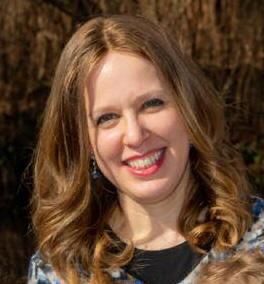
The Promise of Chamisha Asar B’Av
By Batsheva Segal, Berlin, Germany.
This week presents an interesting juxtaposition between the tragedy of Tisha B’Av and the celebratory 15th of Av. While these two events are seemingly at odds with one another, we know that everything happens b’hashgocha protis (Divine Intervention) and there are always deeper connections for us explore.
Historically, the 15th of Av has provided a ray of hope following some of the most devastating events in Jewish history. After 40 years of wandering the Midbar (Desert) to atone for the sin of the Miraglim (Spies), it was on the 15th of Av that Bnei Yisroel understood they were ready to enter Eretz Yisroel. We read the haftorah of Nachamu on the Shabbos following Tisha B’Av and we recall the midrash heralding the birth of Moshiach during this time.
However, perhaps the most powerful allegory for us to consider is the link between the full moon – which is in full effect on the 15th – and the Jewish people. As we know, the Yidden are often compared to the moon and its rotational cycle. At times we glow like the moon at its zenith, while at others we experience darker periods that conceal our true potential. The full moon of the 15th of Av reminds us that even during our moments of shadow and doubt (a la Tisha B’Av), we can always push back the darkness and shine anew.
May we channel the hope of Chamisha Asar B’Av and discover only simchos and joy in the year to come.
Source:
מאמר לא היו ימים טובים לישראל תשמ״ז
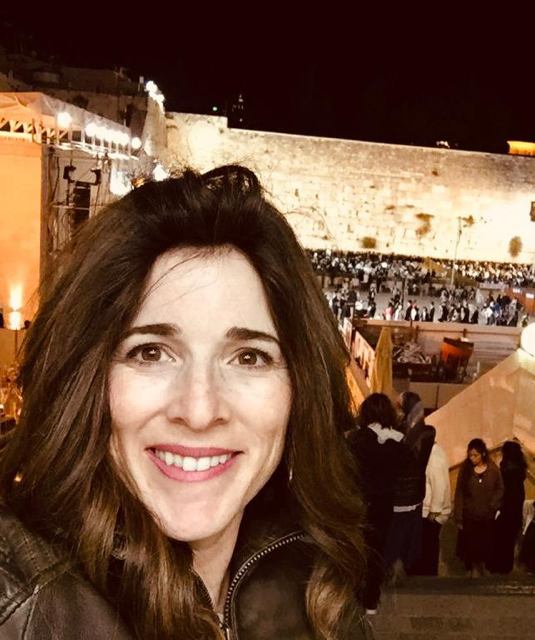
Women of Today, Separating Challah of Tomorrow
By Hindel Swerdlov, Yerushalyim, Israel.
The Jewish Woman comes to the Tomb of Rachel on a Friday morning to pray and perform the mitzvah of “challah” at the site of the oldest Jewish tombstone in history. With this blessing, she, along with fifty other women, will answer “Amen” to hopes, desires and dreams that represent our Jewish nation’s wellbeing.
The inspiration for this female collaboration is to hasten Moshiach, when we will once again be preparing the challot in the Third Temple.
The Mainstay of her Home comes to Momma Rochel on her only day off in the week. She approaches the table where large mixing bowls are set in a row. Into the bowl she pours in her water and flour alongside other women whom she has never met before but with whom she feels a vital connection.
This Superwoman mixes the dough with her bare hands. She sings holy words as she begs for the welfare of her loved ones – and those she does not know, but knows she loves. They are all at Mother Rachel’s grave to pray for an enlightened future, where peace and truth prevail.
This Bedrock of her Home tells her Advocate-on-High, that her People need safety, and her family requires financial stability. She asks for peace of mind and spiritual clarity in her quest for a purposeful life.
She sprinkles salt and sugar into her bowl as she gives thanks to G-d for babies that have been born, for women who have found their Bashert, for those who healed mentally and physically, and for marriages that found more beauty.
This Noblewoman then recites the blessing and separates the challah. She raises it up to G-d in front of “Der Mammeh”, while all those around her cry out “Amen!”
The powerful Collective Feminine within feels the energy of this eclectic group and knows that G-d hears her prayers and the world has already changed for the better.
During this International Challah Bake, may all Women of Israel meditate together on being united as one through the ultimate redemption, and may we hear Rachel Imeinu answer “Amen”.

BELIEVING IN GOOD
By Tzivia Grauman, Johannesburg, South Africa.
Suffering seems built into the human condition and no-one is exempt. Pain visits everyone – whether due to a health challenge, a struggle to find one’s bashert (intended spouse), a lack of parnosa (livelihood), or the loss of a loved one. Too often, life appears challenging and bewildering, and Hashem’s ways feel indecipherable and impossible to fathom.
And yet, we are told that we must be b’simcha, that we are obliged to serve Hashem with joy and have absolute faith that everything that we experience is intrinsically good.
In Parshas Vayigash we learn that from the moment Yosef’s brothers arrive in Egypt they are beset by strange, confusing events. The Viceroy behaves in an incomprehensible manner and subjects them to several bizarre experiences. But the instant he says, “Ani Yosef - I am Joseph” everything falls into place. No further explanation is required. In the same way, teaches the Chofetz Chaim, G-d will one day reveal Himself to us and say, “Ani Hashem - I am G-d” and suddenly everything will make sense.
In his book, Bringing Heaven Down to Earth, Tzvi Freeman shares hundreds of meditations from the wisdom of the Rebbe, Rabbi Menachem Mendel Schneerson. On believing in good, the Rebbe says there are two paths. One is that everything is ultimately for the good. The other declares that everything truly is good, because there is nothing else but “He Who Is Good”. May we merit the strength and insight to recognize the overarching truth of this second path, and live in perfect faith that all is not only for good, but is inherently good.

The Moon and Our Mission in Life: The Message of the 15th Day
A word from the desk of Zissel Goldman, Kauai, Hawaii
The 15th of Av is indeed a most auspicious day.
The Jewish nation is compared to the moon and thus ‘carry’ the traits of the moon within; wherein the phases of the moon reflect our mission in life.
From the 1st through the 15th days of the month, the appearance of the moon seemingly increases in size and light. We too are asked to increase in light a bit more each day – continuously striving to be better, to do more…to transform.
On the 15th day of the month the moon is at its fullest and visible in its entirety.
However, on that very same day, the moon is also on the brink of becoming less full, for it now starts to diminish in size and light. This incremental process continues until the end of the month, when the moon is no longer visible and the cycle begins again.
We are meant to always be increasing in life. Ma’alin Ba’kodesh – growing and ascending in spirituality and holiness. Clearly we are not meant to decrease. What then is the lesson for us regarding the second half of each month?
When bringing light into this world, we must recognize that we don’t technically bring our own light into this world, rather, G-d’s light. G-d’s light already exists. Our task is to channel it and facilitate its revelation in this world through our actions.
While the moon appears to be diminishing in size, it is actually drawing closer to its source, the sun; until when fully aligned with its source, we can no longer see any part of it. However, it is at this time that it is renewed to once again continue to reflect its light into the world.
So too, the more we surrender our ego and focus on self-improvement and refinement – recognizing G-d’s hand, our source, in our actions – the more we are able to channel our Divine light.
The 15th day of the month is a bridge between these two distinct lunar phases, embodying the message that we are not meant to simply increase in the quantity of our light, but also and more importantly, in its quality.
The message of the 15th day of Av is thus to continue to increase in our light as we did the day before, but to be a bit less self-absorbed. So that as the light increases, it also becomes brighter and clearer.
Likkutei Sichos, Chelek Lamed Daled,Parshas Va’eschanan p41-50

Letting G-d In
A word from the desk of Fruma Schapiro, Sydney, Australia
The Kotzker Rebbe posed the famous question:

The Prophetess Miriam
A word from the desk of Esther Piekarski, Tel Aviv, Israel
We meet her at age 3, when she first encourages her father Amram to remarry her mother, Yocheved. Miriam prophesizes that their son will lead the Jews out of Egypt.
She, along with her mother is then tasked by Pharaoh, as one of the Jewish midwives, to kill the Jewish male newborns.
Miriam defies his decree, and stands up to him, putting herself in grave danger. Her mother saves her, claiming “she’s just a child”!
We encounter Miriam again, watching over her baby brother, cast into the Nile, waiting to see him to safety. Once the infant Moshe is discovered by Pharaoh’s daughter, Basya, Miriam deftly arranges for his own mother, Yocheved, to be his wet-nurse, ensuring that his primary years are nurtured by family.
We meet Miriam a third time, leading the women in song and dance, with tambourines in their hands, as they celebrate the Exodus from Egypt.
As the Jews enter the desert our Sages tell us that a well providing vital sustenance travelled with them until they entered Israel. This miracle was performed in the merit of Miriam
Finally, we meet her as Miriam speaks about Moshes separating from his wife – an act for which she is punished We mention this event in our daily morning prayers. The Lubavitcher Rebbe asks, “why?”.
The Rebbe explains: Miriam’s intent was to bring Moshe and his wife back together to have another child. She risked punishment willingly, for another child to be born.
This was her focus in life and this is what we are to meant to remember daily: every life is precious. We must do all we can to bring life and there can be no greater goal than to forge and bring together a young couple so that life can continue to grow and the Jewish people to flourish.
Source: שיחת י' שבט תשח
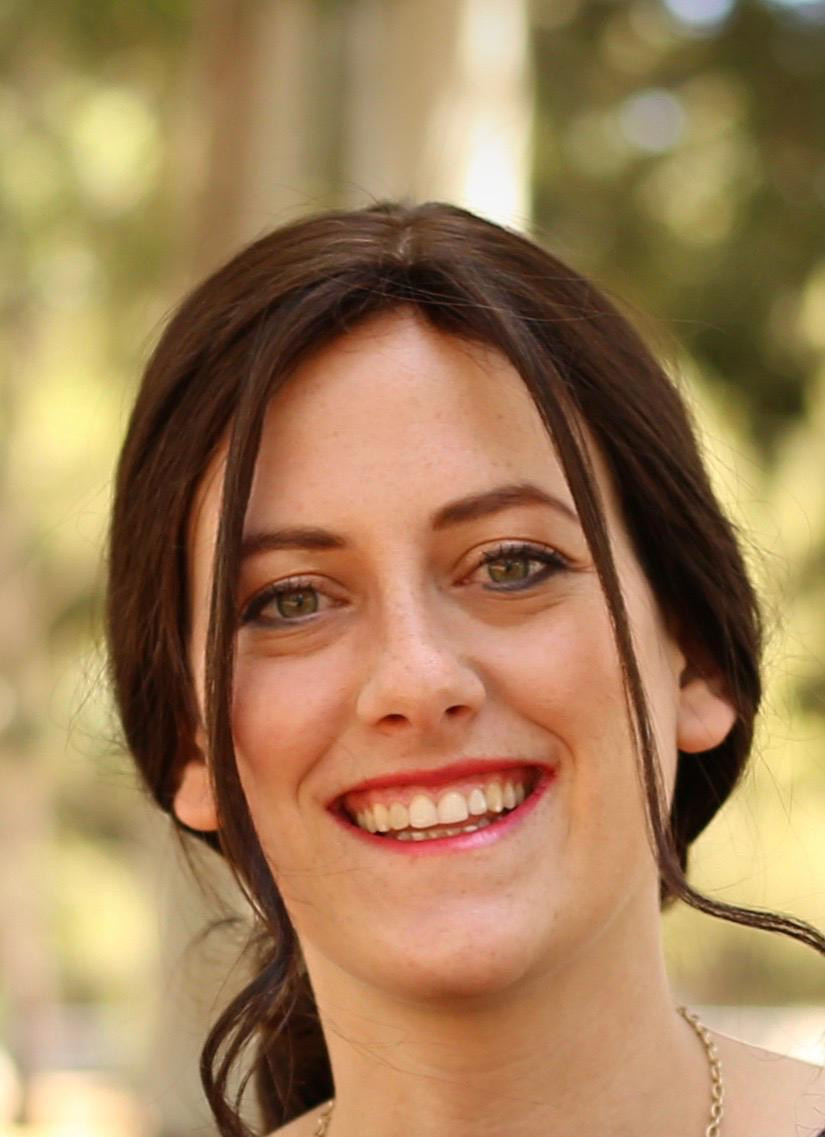
Challah – In Hashem’s Hands
A word from the desk of Temmi Hadar, Johannesburg, South Africa
Let’s start at the very beginning: Bereishis Barah Elokim (Berashis 1:1), “In the beginning, G‑d created…”
The Midrash (Berashis Rabbah 1:4) explains that G‑d created the world in the merit of the mitzvot that are referred to as reishis, first. Separating challah is one of these mitzvos. The dough separated is described as reishis arisoseichem (Bamidbar 15:21), the first of your dough.
What could possibly be so important about separating a piece of dough that the Midrash states that it is one of the purposes of Creation?
Another Midrash (Vayikra Rabbah 15:6) notes that the mitzvah of separating challah is followed by the prohibition of Idolatry. This teaches us that “one who fulfills the mitzvah of separating challah, it is as if he has nullified the worship of idols.” How is this possible? Challah seems to be such a small mitzvah, while idol worship goes against the fundamental beliefs of Judaism?
There are many preliminary steps to making challah. A farmer plows, plants, waters and harvests the wheat, which then must be sifted, milled, packaged and shipped. Thus, while one might mistakenly conclude that the flour is solely the result of one individual’s hard work and effort, it really reflects the collaboration of many.
Bread is also a metaphor for all physicality. Indeed, we even call money “dough”. Just like a farmer can mistakenly think that flour is purely the result of his own talent, it is very easy for people to attribute financial and material success in life exclusively to our own talents and skills.
This is where the mitzvah of challah comes in. By taking a small piece of dough and separating it, one is acknowledging that the dough and all our material successes are not just a result of our own hard work, but rather are blessings from Hashem.
Therefore, the mitzvah of challah negates the idea of idol worship. We often think of idol worship as bowing to crude graven images. But there are other, more subtle forms of idolatry. When we think we are in control, and it’s all about our own hard work, we are worshiping ourselves and placing ourselves above G-d.
Taking challah shatters the illusion that life is all in our own control, and our successes are only due to our own efforts. As we travel our individual paths in life, we all encounter our own personal challenges, finding shidduchim is but one of these struggles. The mitzvah of Challah teaches us to invest all our effort into solving difficulties, but at the same time to separate a piece for Hashem. To understand and believe that ultimately this challenge as well as the solution to all our struggles resides in Hashem’s hands.
Source: Adapted from Likutei Sichos, Vol. 18 pp. 183-185

A Moon Full of Hope
A word from the desk of Rachel Jacobs, Birmingham, England
”There was never a day as festive and joyous for the Jewish nation as the 15 of Av and Yom Kippur.” (Taanit 26b)
”What goes up must come down” is a saying with which we are all familiar. But what about the opposite: What goes down must come up? Judaism strongly believes “a descent is experienced for the purpose of an ascent.” This is clearly evident as we approach the greatest holiday of the year – the 15th of Av, lovingly known as Chamisha Asar b’Av—the Jewish holiday when the moon, which mirrors the Jewish people, having descended into darkness at the end of the previous month, returns in full and shines its brightest.
Like the moon we each have our highs and lows; sometimes we feel almost invisible, and other times we experience growth, completion, and wholeness.
Many of the Jewish festivals commence on the fifteenth day of the month. But Chamisha Asar B’Av is perhaps the most special. Av is the month that has all the spiritual energy of renewal and rebirth. After we fall to our lowest on the 9th of Av, Tisha B’Av, when we commemorate the destruction of the Temples, we are, by the 15th, ready to soar. Life depends on change and renewal. The joy of the 15th of Av is that we remember that life is full of ups and downs, but without the downs, we wouldn’t be able to achieve the full potential of the ups. Chamisha Asar b’Av is numerically equivalent to the letters of Ketiva Ve’chatima Tova, the classic Jewish new year greeting. On this day, we begin to look forward to the year ahead, as we reflect on our upside-down moments and use them to give us strength to live the right-side up.
Based on the Rebbe’s Public Address 15 Av 5743(1983)
Bnei Yissochar

Challah - Bread of Heaven or Earth?
A word from the desk of, Chanie Krasnianski, Manhattan, New York
”A soul may descend into this world for 70 or 80 years just to do a favor for another....a physical favor, and how much more so a spiritual favor!”
-The Baal Shem Tov
About 20 years ago at one of our Chabad House events, a young couple, Emily and Josh (not their real names) won a raffle, a weekly delivery of Challah for an entire year.
Sure enough that Friday their doorbell rang and their first weekly challah had arrived. They peered into the shopping bag and were amazed to find a bag overflowing with Challahs. They had never observed Shabbat before and were confused as to what they should do with all this bread.
Emily called me and I explained the concept of Lechem Mishneh, double loaves at each Shabbat meal. She was intrigued and after a short crash course in lighting candles, making Kiddush and Hamotzi, she decided with “all this bread” she would invite several friends and neighbors to join her Shabbat meal.The next week we spoke again and I explained to her the best way to keep food hot on Shabbat, which led to a lengthy discussion on how to serve a kosher meal. This went on week after week, each time I added a few more details to Shabbat observance and each week her Shabbat dinners became more and more elaborate.
Remarkably, as the year unfolded, they kashered their kitchen and began keeping Shabbat! Soon they were hosting Torah classes in their home. They started keeping Taharat Hamishpacha and she began covering her hair.
Emily and Josh continued to learn, which brought them to the realization that perhaps their marriage ceremony and Ketubah may not have been done in accordance with Jewish law. They brought their Ketubah to the Rabbi for review – a beautiful piece of artwork with magnificent calligraphy. There, clear as day, were the two beautiful words intertwined with ornate design, Chatan v’Kallah. ( Groom and Bride). However, the word Kallah (bride) was misspelled Challah (with a Chet instead of a chof) changing its meaning from bride to Challah bread. Clearly Challah played an oversized role in their life trajectory and served as the catalyst for tremendous transformation and blessing!
On the surface we know that one mitzvah leads to another, and another and another, revealing our essence and giving voice to our soul. However on a deeper level, Challah, with its unique status as one of the three special mitzvot of a woman, represents a fundamental truth. The physical and the spiritual are two sides of the same coin. Challah bridges the gap from the seemingly physical to the absolutely spiritual.
Sarah, our matriarch, had this special blessing in her dough. To quote Weight Watchers, “It’s not what you are eating but what’s eating you!” Or as the Baal Shem Tov taught, “We think we are hungry for food, we are actually hungry for G-dliness.”
Herein can be found the true meaning of Challah; our ability to recognize the holiness and the wholesomeness within each and every thing and the revelation that the physical is the spiritual!
May we all be blessed physically and spiritually and find truly wonderful shidduchim for our children; and may we see them build beautiful homes based on the foundations of Torah and Mitzvot!
Sources:
Shemos 16:2 Rashi
Ethics from our Father 4:2
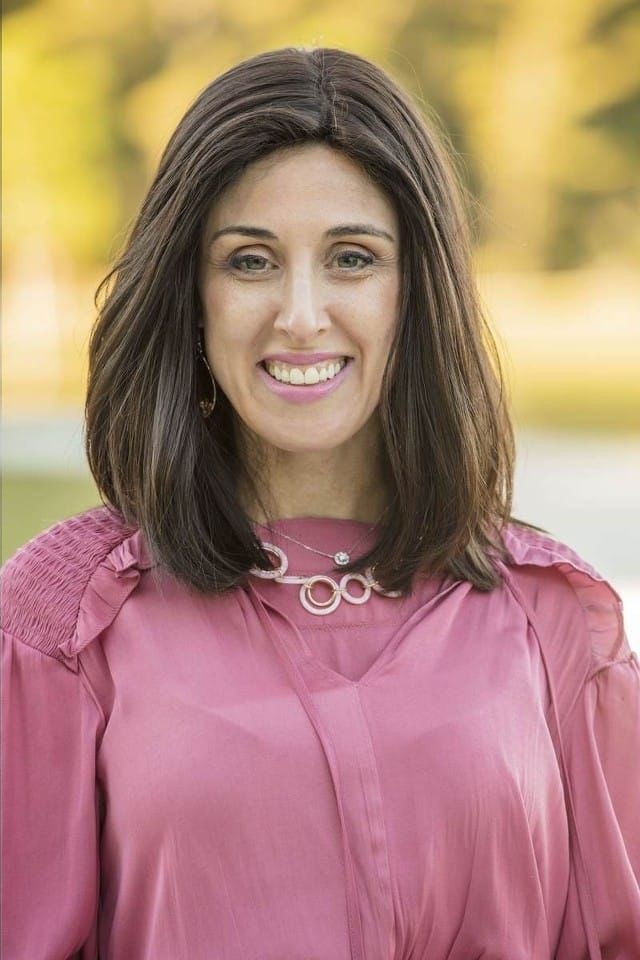
No Two Challahs Are Alike
A word from the desk of Rochel Holzkenner, Fort Lauderdale, Florida
“Your Challah is delicious this week, Mommy”! I’ll take those awkward and backhanded compliments. Tasty challah is always a reason to celebrate.
Have you ever wondered about challah discrepancies? We all use the same seven simple ingredients: water, yeast, sugar, flour, eggs, oil and salt – yet each batch is different. How vast are variations and permutations of seven ingredients? I envy those holy ladies whose challah always pops out of the oven in the perfect soft and smooth texture, and, of course, with a crispy crust.
Kabbalah tells us that each soul is composed of seven middos - emotions. These middos form our persona and are the drivers that steer the course of our lives. Like challah, we all possess the same seven middos, but we are all profoundly different. A little more chesed - attraction in me, a stronger sense of gevurah - boundaries in you, are the subtle differences that make the distinction in our unique weltanschauung (worldview) and our unique soul print.
Just like my fingerprint can’t unlock your phone, my soul print can’t unlock your potential. But yours can! Life calls upon us to utilize our middos and develop them; taking them from self-oriented emotions to mission-oriented emotions. Deciding to keep Shabbos when none of your friends keep it, grows your middah of netzach - tenacity. Pushing back on a feeling of inadequacy that threatened to erode your joy in life develops gevurah - mental discipline. Having the faith that Hashem will open a path of success even when you’ve been disappointed - requires flexing every emotional muscle you’ve got.
Hashem created the world in a way that each and every human being would have their own unique look; it is impossible for any two people in the entire universe to be identical even if they look similar! This teaches us that every person has a unique personal mission, but no one has that same mission. This unique mission is absolutely essential in the fulfilment of the ultimate purpose of creation.
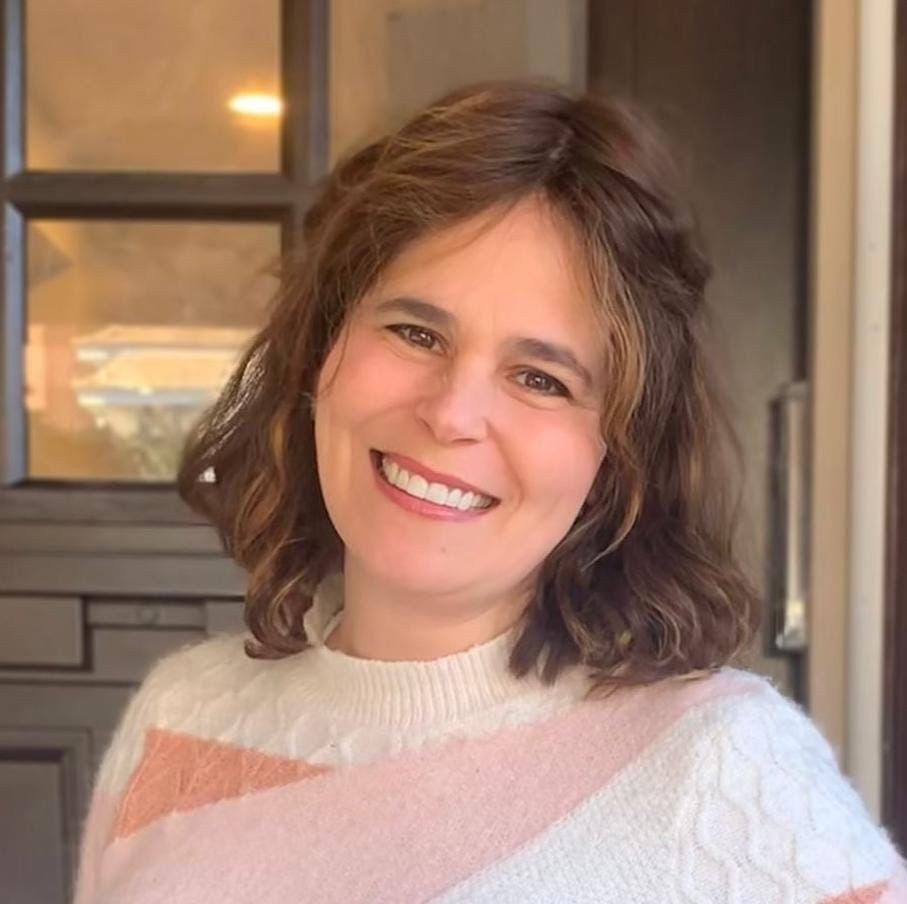
The Wondrous Blessing of Flour Mixed with Water
A word from the desk of Shterna Ginsburg, Brooklyn, New York
”Give the first of your dough to the Kohain, to bring blessing into your home.”
(Yechezkel 44:30)
Of the twenty-four gifts that are offered to Kohanim, this gift, the first of our bread dough, is singled out as a source of blessing. Why is that?
The primary ingredient of bread dough is flour. When we look at a cup of flour, we see many separate, individual granules of wheat.
By contrast, water represents oneness - unity. Water retains its true characteristics even as it flows from a high place to a lower reservoir. (Taanis 7:1)
As soon as we add water to flour, the discrete granules of flour transform into one unified form – a piece of dough that will be Challah.
Flour and water represent two opposite ways of viewing ourselves.
Flour says, “I am my own entity, separate from Hashem; powered by my Self.”
By contrast, Water says, “I am never on my own. I am empowered by Hashem, and as I strive to fulfill my life’s purpose, He is always with me.”
When we are like “flour,” we look at our challenges and we feel alone, disempowered and helpless. But that is not a dead end; it’s our cue to roll up our sleeves and make Challah! We start with pouring “water” into our mix – soaking up the reassurance and encouragement of Hashem’s loving Presence in our lives.
Challah represents our journey from “powered by Self” to “powered by Hashem.” Striving for this transformation is how we invite an abundant flow of blessings into our homes, our lives, and the world.
As we prepare to bake challah together, may we all experience Hashem’s loving Presence in our lives with revealed blessings rising in all for which we pray, and with goodness beyond our best dreams!
Based on the Lubavitcher Rebbe’s ma’amar “Reishis Arisoseichem” 5729

Yearning for Moshiach A Tisha B’Av Reflection
A word from the desk of Chaya Schildkraut, S.Paulo, Brazil
Tisha B’Av represents the saddest of days in the annual Jewish cycle, when we contemplate the bitter Golus (Exile) and our souls yearn for hopeful signs of the ultimate Redemption.
The Tzaddik, Reb Yisroel of Ruzhin was wont to recount a story of the revered Shpoler Zeide.
The beloved Defender of the Jewish people would plead before the Al-Mighty: “Ribono shel Olam! For the sake of winning an argument, must your Children suffer this endless Golus? B’nai Yisroel cry out ‘hashiveynu Aylecho (bring us back to You)…ve’nashuvoh (and we will return)’; while Hashem says: ‘Shuvu Aylai (Repent and return to Me) ve’Ashuva aleychem (and I will return to you and end the Exile)’. Does it really matter if the Father comes to the children or the children come to the Father? Can being “right” justify this terrible ordeal?” And then, the Shpoler Zeide would conclude by warning that the B’nai Yisroel, Hashem’s precious children would never do teshuva before Hashem delivered them into Redemption.
The Ruhziner would then add:
This I promise: “when Melech Ha’Moshiach – the Redeemer of the People of Israel – arrives, every Jewish neshomo will immediately do Teshuvah”. This, explained Reb Yisroel, would reflect the true chronology…For Hashem decreed the four periods of Exile to Avrohom Avinu even before the Jewish people transgressed any of the mitztvos. It therefore follows, concluded the Ruhziner, that the Geula – the ultimate Redemption – should precede and in effect, serve as the guarantor of the Teshuva of the Jewish people.
May we merit the Geulah Shleima speedily in our time, when every day will be as holy and joyous as the 15th of Av in whose honour we unite around the world and partake in the mitzvah of Hafroshos Challah.
Source: Sipurei Chassidim

Has This Ever Happened to You?
A word from the desk of Leah Namdar, Gothenburg, Sweden
Has This Ever Happened to You?
You read a story of a Tzaddik – perhaps a tale of the Arizal or the Baal Shem Tov, where it is revealed to someone who they were in a past lifetime and what task they must accomplish in this world. And then you wonder…wouldn’t it be incredible if a great Tzaddik could share with me what my neshama came into this world to accomplish? Who was I in my past life? What remains unfinished that we may have been sent back to do? If only we knew...
The incredible news is, we do know!
The Rebbe teaches us in the name of the Arizal: “the generation of the future redemption is a Gilgul (reincarnation) of the souls who went out of Egypt”.
The Rebbe continues: According to this, the righteous women of our generation – in whose merit we will be redeemed – are the very same righteous women in whose merit we left Mitzrayim.
What was it about those women? What did they do?
The special merit of those righteous women was that even before leaving Egypt, their faith in the redemption was so strong and they were so confident that Hashem would perform miracles for them, they left Egypt fully equipped with musical instruments – tambourines – ready to thank Hashem!
These women succeeded in a partial Geula - leaving Mitzrayim. But their generation didn’t all merit to enter Eretz Yisroel. And the Geula, therefore, was not permanent.
We have to finish the job - to bring Moshiach here and now. As we gather together in unity at this special time, let’s remember the power of the women of this generation.
Let’s make history! Through this demonstration of achdus (unity) and expression of simcha (joy), we can and will make it happen this time around!
Sources:
1.
כתבי האריז״ל
שער הגלגולים, הקדמה כ׳
לקו״ת וספר הליקוטים שמות ג׳ ד׳
2.
קונטרס כ״ב שבט
Page 32

You Don’t Have to it Alone
A word from the desk of Estee Schneerson, Crown Heights, Brooklyn, NY
Bitachon is faith and trust in G-d, along with a powerful sense of optimism – which serves to diminish and even eliminate one’s fears and worries. Bitachon is so potent a force, that when a person expresses true Bitachon, nothing negative can occur.
When seemingly negative things emerge, they are nothing more than Divinely choreographed scenarios, where one’s Bitachon is challenged and weakened, making it hard to see any room or reason for hope.
It is precisely at these times we are called upon to awaken our Bitachon, however challenging that task may be.
The Baal Shem Tov taught that we do not have to do it alone. We can and should pray to G-d that our faith be strengthened, to give us Bitachon. Then, G-d will indeed restore our faith, and bestow upon us blessings of revealed goodness.. expeditiously!!!
A story is told of Reb Michoel Der Alter, a Chossid of the Tzemach Tzedek. His daughter became terminally ill. Reb Michoel immediately went to his Rebbe seeking a blessing. Rather than blessing him, the Rebbe said “Tracht Gut Vet Zein Gut”, “Think good and it will be good” Reb Michoel went home full of confidence, despite there being no rational reason for it, and indeed his daughter recovered.
Instead of performing a miracle for the Chosid, the Rebbe taught the Chosid how to perform his own miracle.
It is written that all that comes from G-d is good, though sometimes this good is hidden, it constitutes the underlying reality of all things. “Tracht gut vet zein gut” is not a strategy to manipulate reality; rather, a means by which the deeper reality of true good will surface.
Sources: Kesser Shem Tov pg. 65- the mokor is from Toldos Yakov Yosef- Parshas Mishpotim Bishem haBesh
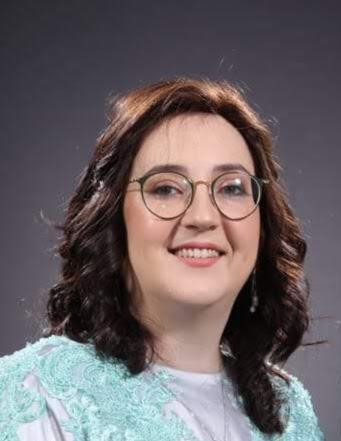
The Message of Miriam’s Well
A word from the desk of Estie Wilhelm, Zhitomer, Ukraine
When the Children of Israel sojourned in the desert, they were provided with heavenly food, mann, in the merit of Moshe Rabbeinu; they were protected by clouds of glory in the merit of Aharon Ha’Kohen; and they drank from a miraculous well of water that accompanied them in the merit of Miriam ha’Niviah.
Our sages consider why was the well of water specifically connected to the merit of a woman?
In his commentary regarding the biological function of water, the Rambam writes that although water is not a food, it enables the body to absorb nutrients from food and facilitates their distribution to all the limbs and organs.
The Lubavitcher Rebbe explains that similarly Jewish women have the special ability to disseminate the spiritual nutrients of Torah and Mitzvos such that they can be absorbed by every member of the unified

Tisha Ba’av – The Lesson of the Keruvim
A word from the desk of Chaya Chitrik, Istanbul, Turkey
As the Romans destroyed our Holy Temple, they burst into the Holy of Holies and removed the Aron Ha’Kodesh – the Golden Ark containing the remnants of the Luchos Ha’Bris, the tablets with which Moses descended from Sinai . On top of the ark were the Keruvim - carved out golden figures of winged children, both male and female, which were evocative of our relationship with G-d. When our conduct was righteous and praiseworthy, the bride (representative of the Jewish people), would be facing our “groom” (symbolic of the Al-Mighty). However, when our thoughts and actions were not as they should be, the Keruvim would face away from each other, signifying that bride and groom were at odds… with G-d conveying displeasure with us.
Curiously, when the Romans sought to mock us and parade about with the holiest of our possessions in the streets, the Keruvim were facing each other! During a terribly trying time for us as a people when we were clearly being punished for our transgressions and Hashem appeared none too pleased with us, His bride, the Keruvim were projecting a time of marital bliss!
From this we learn one of the most powerful lessons about marriage. At times, a marriage may appear to be under stress, even to the point of crumbling or disintegrating altogether. But behind closed doors, where things really matter, the marriage is still very much alive and strong. So while our enemies may have sought to destroy us, and in a time when it may seem that G-d is displeased with or even rejecting His bride, Hashem reminds us that these perceptions are limited to an external reality. Our bond with one another, our connection to our “Groom”, the Creator of the Universe, can never be broken. We will forever be face-to-face.
May we merit to be united with Hashem in an open and revealed way with the coming of Moshiach, speedily in our days!
Based on a sicha of the Rebbe: לקותי שיחות, חלק ב' פרשת ואתחנן
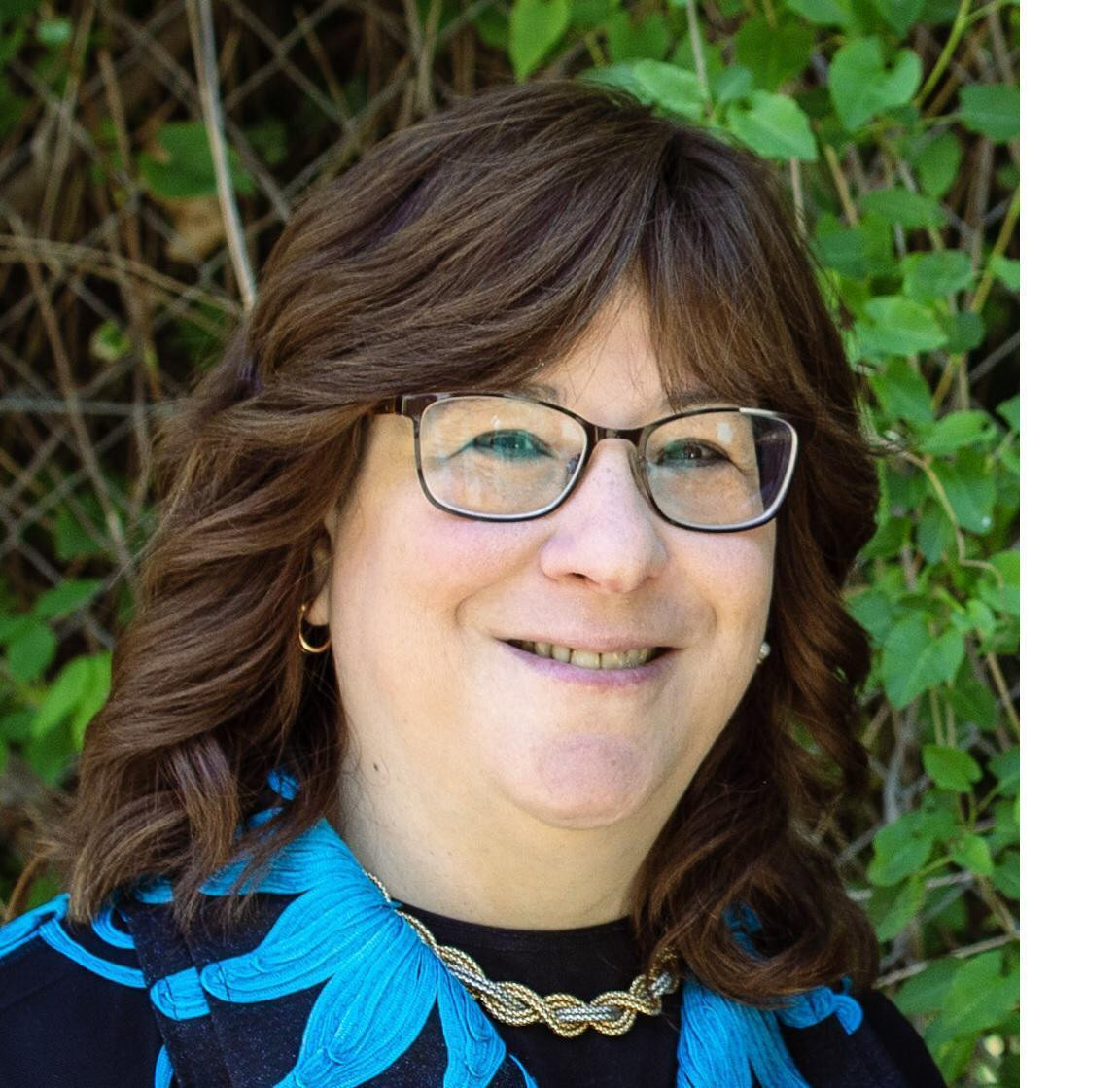
Uniting the Material and Spiritual
A word from the desk of Chanie Diskin, Munich Germany
The mitzvah of Challah was given to woman because it is a tikun (correction) for the חטא עץ הדעת (the sin of eating from the forbidden fruit).That fateful transgression triggered a separation between kedusha (that which is holy) and gashmius (the mundane world), while the mitzvah of Challah represents the antidote – the elevation of gashmius (the physical world) to ruchnius (spiritual).
Halacha dictates that we may only separate Challah from a kneaded dough – once the flour and water are joined together. Curiously, however, it is not yet baked and therefore not really edible! Would it not be more logical to perform the mitzvah following the completion of the baking process?
Flour is composed of separate particles, thus symbolizing materialism which “itself” feels as an independent entity from Hashem. The water symbolizes Torah (אין מים אלא תורה). The union of flour and water symbolizes the penetration of Torah into worldly affairs, until they cease to be separate entities and become one Divine entity. The role of the Jew is to instill אלקות (Godliness) into every aspect of our lives – which is learned from the halacha that we may only take Challah from an already kneaded dough and not when the ingredients are separate entities.
Source: Toras Menachem, Perek 23, pg. 83.
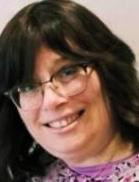
Simcha is Always Welcome
A word from the Desk of Dina Gourarie, Sydney, Australia
The Gemora (Taanis 22a), relates that R’ Beroka met Eliyahu Ha’Navi in the market place and asked him if there were any people there destined for Olam Habah (the world to come). Eliyahu identified two individuals. Intrigued, R’ Beroka approached and asked them what were their occupations?
They replied: “We are comedians who bring joy to those who are depressed.”
The Rebbe (see Shaar Simcha Ubitochon B’Hashem pg 81 onwards), points out that although the primary source of Simcha is Torah and Mitzvahs, nevertheless, often it can be derived from simple mundane experiences. This is an important concept because it allows even those who are simple and involved in the mundane to both give and receive joy.
The above story emphasises the power of this idea. It takes place in the ‘market place’ - a place of mundane activity away from the halls of Torah and Tefila. Yet a little comedy bringing happiness to the downtrodden guaranteed two people (long before their time was up) a place in Olam Habah.
As often quoted by the Rebbe, even in the month of Av a strategy to decrease any form of negativity is through (permissible) Simcha. Use the power of joy and bring blessing to you and others.
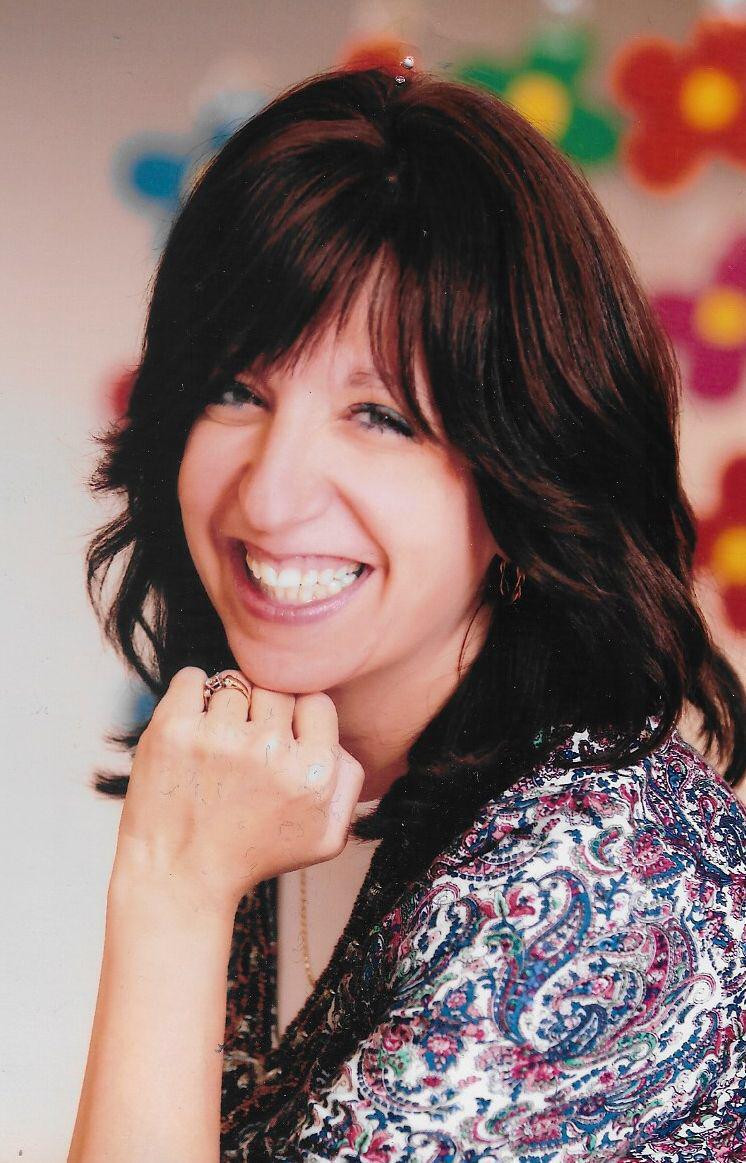
I Said NO Because I love you!
A word from the desk of Mrs.Chanie Myers, Bratislava, Slovakia
The name of the month of Av teaches a profound lesson regarding the essence of Av and our relationship with G-d during this time. As a rule, all Jewish months have names which are related to the spiritual life-force of that specific month. Two examples are: the month in which Rosh Hashanah falls, Tishrei, which comes from the Aramaic word

A Take Away From the Challah
A word from the desk of Mrs. Dena Schusterman, Atlanta, Georgia
It’s sinful to speak ill of others.
We are even reproached from judging others—-until we stand in their shoes.
I.E. never.
Yet, it’s natural to judge.
So we are back to square one of thinking unhelpful thoughts, which can lead to speaking badly. What is a woman (man,or child too) to do?
Learn from the candles, learn from the challah, learn from Shabbos.
Before Shabbos we separate the bread. Creating divine challot.
As we welcome Shabbos we light the candles. We bring light into our dark homes.
As Shabbos leaves we light the torch of Havdalah.Its name is separation.
What are all these actions telling us?
They tell us about discernment.
Instead of judgment,
Separate yourself like the piece of challah you took.
Say to yourself, “That action is not for me.” Notice you can be different.
Use distinctions and leave the judgment behind.
Instead of judgment,
Illuminate like the light of the Shabbos candles.
Say to yourself, “I need more information to understand what’s going on.” Leave the feeling of bumping around in the dark behind.
Instead of judgment,
Use the shadows and warmth of the Havdalah torch to create boundaries.
Say to yourself, “I am me, you are you. We are different, we don’t need to be the same. “
The separation and diversity is what enriches us.
Through this process I take more time to notice what is unusual or not a fit for me. I feel safe, instead of anxious about another and her ways. I think I am able to judge less and wish well instead.
Source: RCS JLI Pause and Affect, A Shabbat Outlook